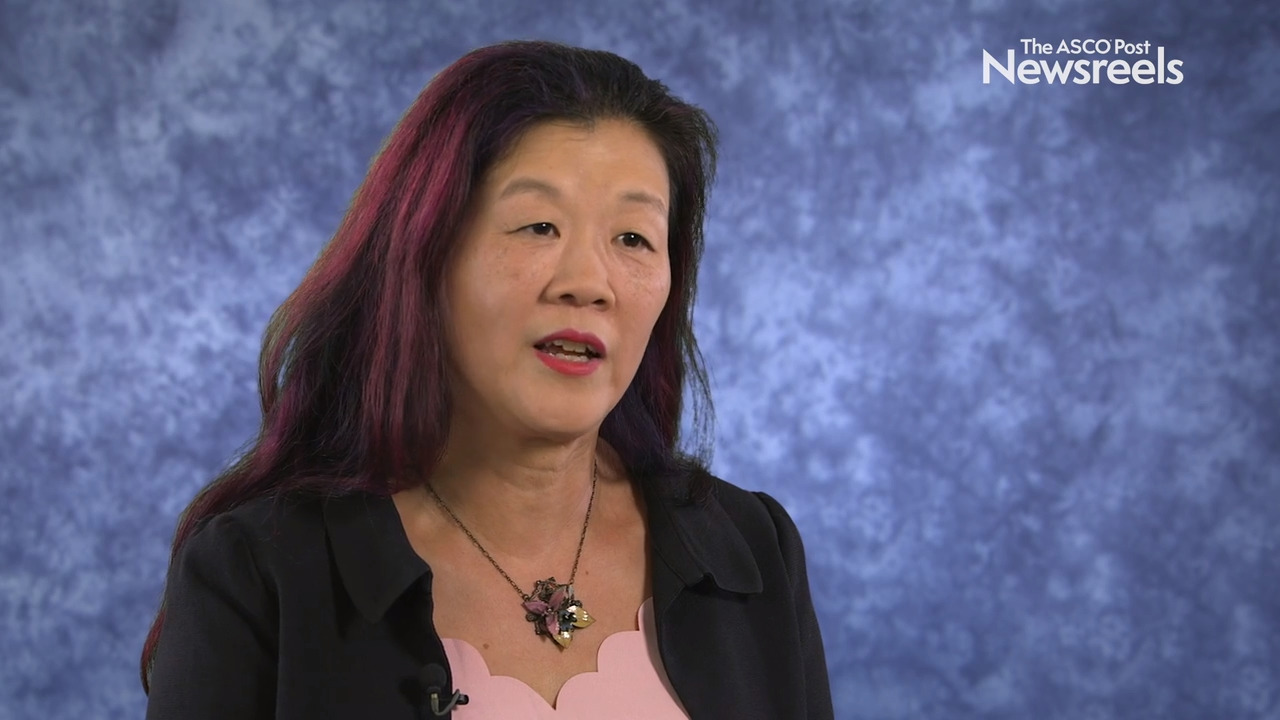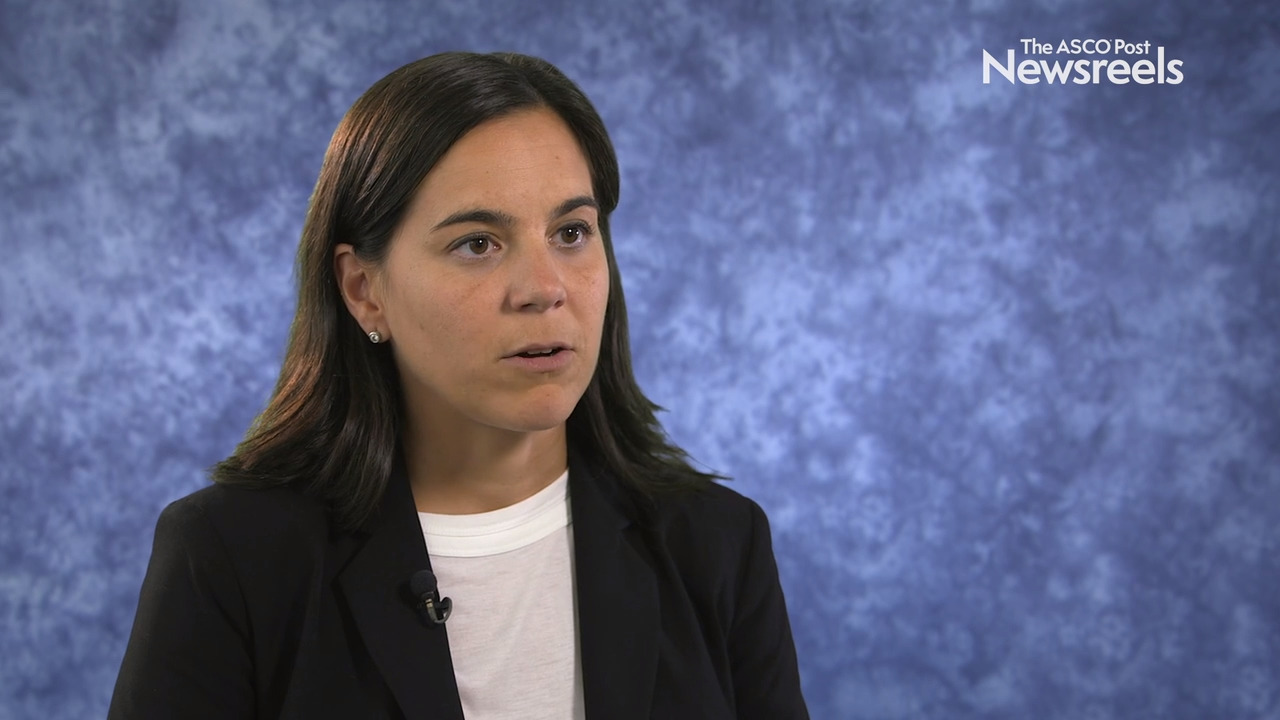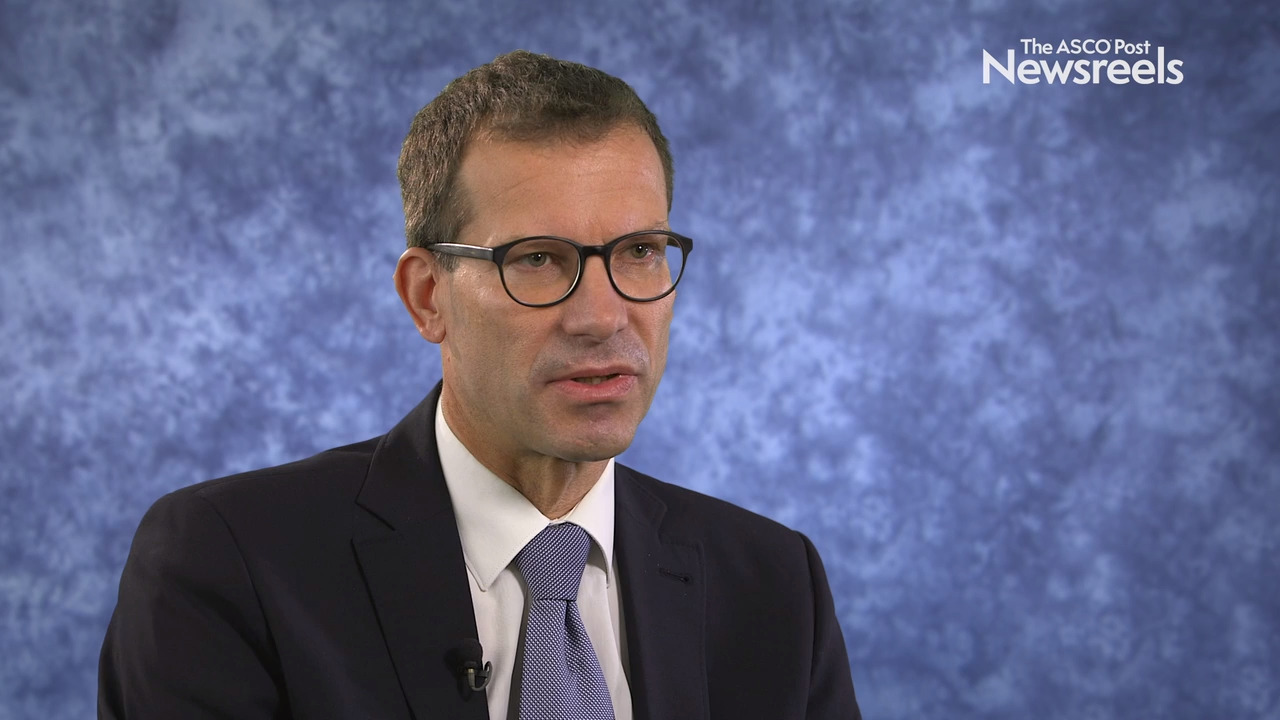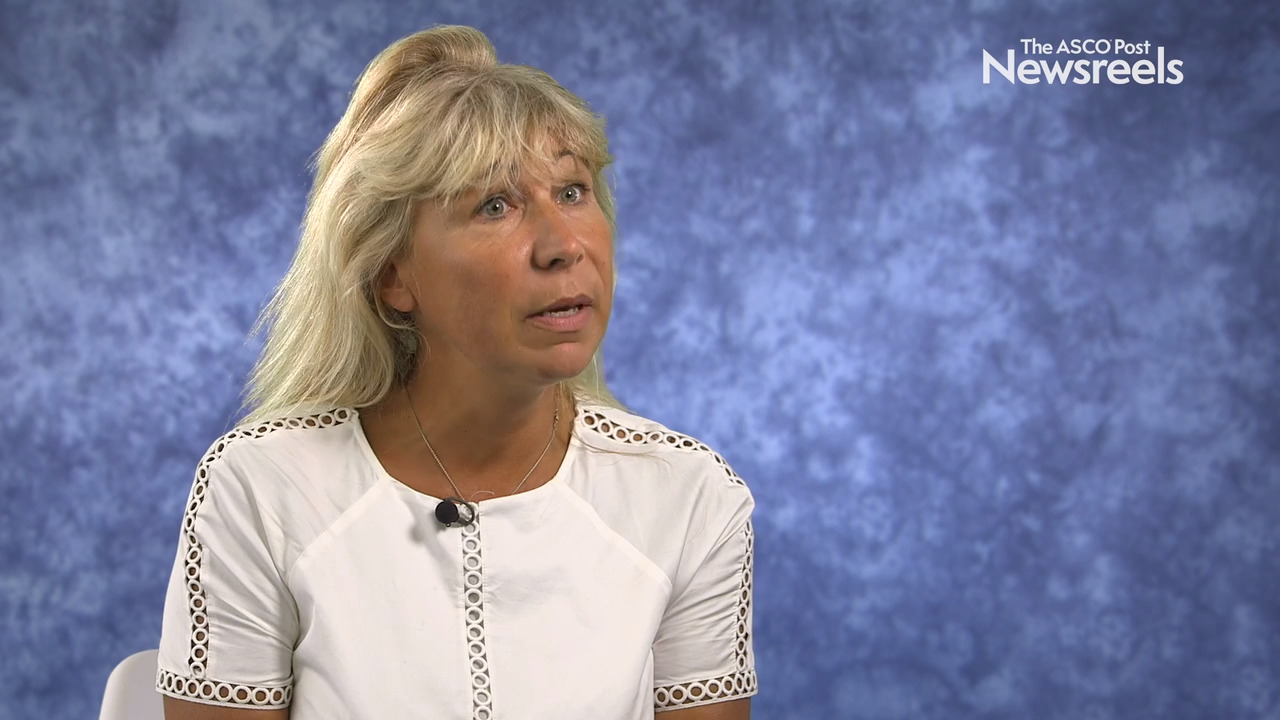Thomas Powles, MD, PhD, on Metastatic Urothelial Cancer: Durvalumab Plus Targeted Treatments
ESMO 2019 Congress
Thomas Powles, MD, PhD, of Queen Mary University of London, discusses the first study to examine immunotherapy and targeted treatment combinations with a personalized approach in bladder cancer. FGF, TORC1/2, and PARP inhibitors were explored in combination with durvalumab in selected patients (Abstract 902O).
Laura Q.M. Chow, MD, of the University of Texas at Austin, Dell Medical School and LIVESTRONG Cancer Institutes, discusses phase II study findings that showed the ALK inhibitor ceritinib achieved durable intracranial response in patients with ALK-positive non–small cell lung cancer that has spread to the brain (Abstract 1478O).
Angela Lamarca, MD, PhD, of the Christie NHS Foundation Trust, discusses findings from a study that showed new staging criteria should be considered for patients diagnosed with liver metastases in the absence of other extrahepatic tumor spread (Abstract 731P).
Ana Maria Arance Fernandez, MD, PhD, of the Hospital Clínic de Barcelona, discusses the negative results of the phase III IMspire170 trial, which evaluated cobimetinib/atezolizumab vs pembrolizumab monotherapy in patients with BRAF V600 wild-type melanoma (Abstract LBA69).
Volker Kunzmann, MD, of the University of Würzburg/Comprehensive Cancer Center Mainfranken, discusses the final results of a phase II multicenter trial on the conversion rate in locally advanced pancreatic cancer after nab-paclitaxel/gemcitabine- or FOLFIRINOX-based induction chemotherapy (Abstract 671O).
Isabelle Ray-Coquard, MD, PhD, on Ovarian Cancer: Olaparib Plus Bevacizumab
Isabelle Laure Ray-Coquard, MD, PhD, of the Centre Leon Bérard, discusses phase III study findings in patients with newly diagnosed, advanced ovarian cancer who received olaparib plus first-line bevacizumab maintenance treatment. Compared with placebo plus bevacizumab, olaparib improved progression-free survival, with the greatest benefit in women with BRCA mutations and positive homologous recombination deficiency status (Abstract LBA2).





